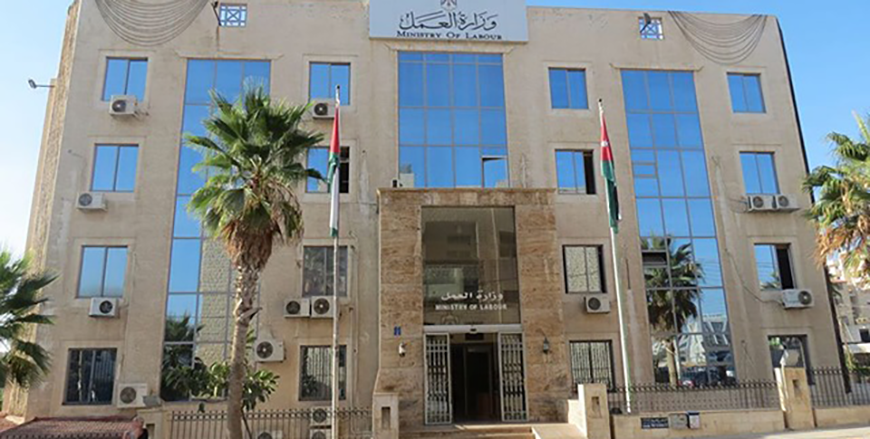AMMAN — More than 46,000 employment contracts have been supported through the National Employment Programme, with half allocated to women, Minister of Labour Khaled Bakkar said on Monday.
The minister added that 5,196 contracts were signed for beneficiaries of the National Aid Fund, including 2,228 for female workers, the Jordan News Agency, Petra, reported.
Bakkar said that the Ministry of Labour, in coordination with the Ministry of Planning and International Cooperation, is in discussions with the World Bank to restructure the National Employment Programme.
The objective is to enhance the programme's effectiveness, expand the number of beneficiaries and extend its duration to sustain job opportunities for Jordanians across all sectors.
He highlighted the role of the national employment platform "Sajil", launched in 2019, in connecting job seekers with employers.
The minister urged both job seekers and businesses to update their information on the platform, encouraging those who have not registered to do so.
The ministry aims to market Jordanians to local, regional, and international labour markets by securing employment opportunities through partnerships with various countries.
Discussing employment initiatives, Bakkar described the Remote Branches Initiative as one of the ministry’s "most effective" programmes.
Originally launched as a Royal initiative in 2008, it employed 2,556 new workers in 2024, bringing the total workforce in production units across various governorates to some 10,000.
Three new branches were opened in Um Al Jimal (Mafraq), Al Jadida (Karak), and Souf (Jerash), while five additional branches are being developed in Faisaliah (Madaba), Fuheis (Balqa), Eastern Mafraq, Mujib (Karak), Wadi Aniza (Maan), and Mughayr Al Sarhan (Mafraq).
The ministry is working on infrastructure to support these expansions.
Bakkar stressed that the ministry is implementing projects under the Executive Programme of the Economic Modernisation Vision to increase Jordanian employment and ensure fair opportunities.
These efforts include enhancing worker productivity, promoting vocational and technical professions, supporting self-employment, and boosting labour inspection, occupational safety, and social protection frameworks.
He also referred to ongoing measures to reduce reliance on foreign labour, particularly in agriculture, construction and industry, by regulating employment practices and ensuring priority hiring for Jordanians in closed professions.
The ministry is enhancing partnerships with the private sector, civil society and international organisations to improve governance in employment and vocational training. These efforts focus on raising service quality, digitalising processes, and enhancing institutional performance, he noted.
Specialised training academies have been launched in collaboration with private sector partners, including an academy with the Jordan Phosphate Mines Company to train youth in mining-related fields, the minister said.
Bakkar added that to align workforce skills with market needs, the ministry has expanded sectorial skills councils, now comprising 15 private-sector-led committees.
These councils define labour market demands and guide training programs to equip young Jordanians with skills for stable employment.
The Technical and Vocational Skills Development Authority has introduced professional licensing to certify workers' competencies.
The ministry has also prioritised entrepreneurship and small business support through the Development and Employment Fund, which offers concessional loans to youth for establishing their businesses.
These loans come with reasonable repayment grace periods to ensure sustainable growth.
Efforts to regulate foreign labour have been reinforced through new policies introduced in November and December 2024, allowing businesses to legalise their workforce while ensuring that hiring foreign workers remains conditional on the employment and training of Jordanians.
Bakkar noted that stricter policies will be implemented to balance foreign worker employment with the gradual integration of Jordanians into the workforce, ensuring a smooth transition without disrupting private-sector productivity.
Looking ahead, the ministry is developing a comprehensive labour market information system to track job seekers’ skills and employment trends, aiding policymakers in making data-driven decisions.
A Labour Market Observatory will also be established to monitor key employment indicators and ensure policy effectiveness.
